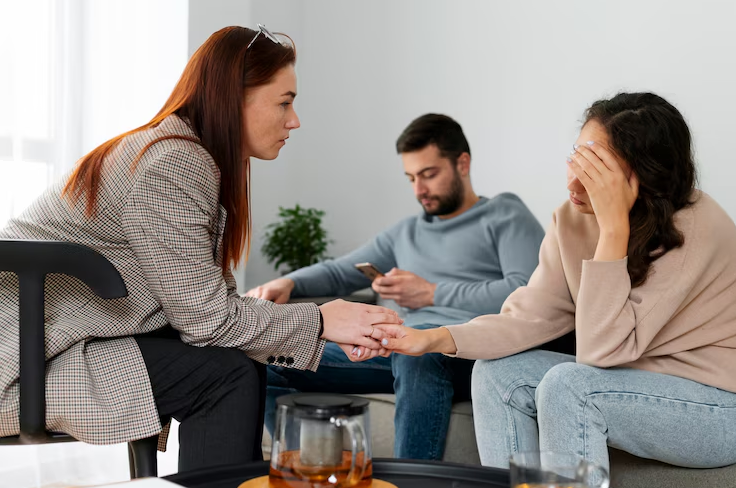Mentally, you need to be healthy as well, but if anxiety or depression takes a turn for the worse, people often don’t know where to go for help. If you are in intense emotional distress, one question that may run through your mind will be, Can anxiety and depression be treated at urgent care?
Yes — with some important caveats. Urgent care centers, including those you might find by searching for urgent care near me, can offer immediate short-term relief, but they are not a long-term solution for treating mental illness. In this article, we will dive into the times when it is appropriate to go to urgent care for mental health symptoms, what to expect if you do go, and what else you can do.
When Is Urgent Care a Good Option?
Urgent care facilities are designed to cater for attention to medical conditions requiring immediate medical attention but non serious enough for the hospital ER. Such clinics always operate outside office hours and weekends, and you can obtain service at your convenience without waiting for your usual doctor or therapist.
You might consider going to urgent care for anxiety or depression if:
- You’re experiencing intense symptoms and need immediate help
- You can’t get in to see your therapist or psychiatrist soon enough
- You’re unsure whether your symptoms are mental or physical (e.g., chest pain caused by a panic attack)
- You need a temporary prescription refill for medication
An urgent care practitioner will be able to diagnose your symptoms and offer temporary comfort and refer you to mental health care specialists for long-term treatment.
What Can Urgent Care Do for Anxiety and Depression?
Urgent care practitioners can examine your state, identify medical emergencies, and provide first aid. Under certain circumstances, they may do what they might:
- Provide medication for short-term symptom relief (such as anti-anxiety drugs)
- Refer you to a psychiatrist, therapist, or primary care doctor
- Conduct basic lab tests to rule out underlying medical conditions (e.g., thyroid issues)
- Offer advice on coping techniques and next steps
Remember that in the majority of urgent care clinics, one won’t find specialists in mental health problems. They are not able to provide therapy or long-term psychiatric care.
When Urgent Care Isn’t Enough
At other times, urgent care is the worst place to be. If you’re having a mental health crisis and you’re self-harming, thinking about killing yourself, or hurting other people, you need to go to the emergency room or call 911 (your local emergency number).
Emergency rooms have staff, on-call psychiatrists, and a minimal room configuration that employs secured rooms for monitoring patients.
Other Places to Get Help
If urgent care isn’t ideal for your needs, there are several other resources to consider:
- Primary care providers: Many people start by discussing mental health concerns with their family doctor.
- Mental health clinics specialize in therapy and psychiatric services, often on a sliding scale for affordability.
- Telehealth platforms: Online therapy and psychiatry services have made mental health care more accessible than ever.
- Hotlines and crisis services: If you’re in immediate danger or feel unsafe, call or text a mental health crisis line like 988 (in the U.S.).
How to Prepare for an Urgent Care Visit
If you decide to go to urgent care for anxiety or depression, a little preparation can make your visit smoother:
- Write down your symptoms, when they started, and how intense they are
- Bring a list of any medications you’re currently taking
- Be honest about your thoughts and feelings, even if it’s uncomfortable
- Ask for referrals or follow-up plans to continue your care
Conclusion
Urgent care centers can assist with anxiety and depression, particularly when you need assistance immediately and there’s no time for a typical appointment. However, they are not a replacement for long-term mental health care.
The combining approach is the best one. Go to urgent care for temporary respite, and also look for regular therapy and psychiatric assistance, and lifestyle changes to keep your mental wellness under control. You deserve help, and regardless of where (in-person, online, or by phone), help is always available. To schedule your appointment with the highest standard of care and visit Sahara West Urgent Care, visit our website.
FAQs
1. Can urgent care prescribe medication for anxiety or depression?
Yes, urgent care providers can prescribe short-term medication to help manage anxiety or depression symptoms. However, they usually do not offer long-term treatment or medication management plans.
2. Will I see a mental health specialist at urgent care?
Typically, no. Most urgent care clinics do not have psychiatrists or therapists on staff. They may refer you to a mental health professional for ongoing care.
3. What symptoms of anxiety or depression might warrant a visit to urgent care?
If you’re experiencing intense panic attacks, overwhelming sadness, insomnia, or physical symptoms like chest pain or dizziness related to stress, urgent care may be a good first step.
4. Should I go to urgent care or the emergency room for a mental health issue?
If your symptoms are severe, involve suicidal thoughts, self-harm, or a risk to others, go to the emergency room or call 911. Urgent care is best for non-life-threatening situations.
5. Can urgent care refer me to a therapist or psychiatrist?
Yes. Many urgent care clinics can provide referrals to mental health professionals or advise you on where to get continued care.



